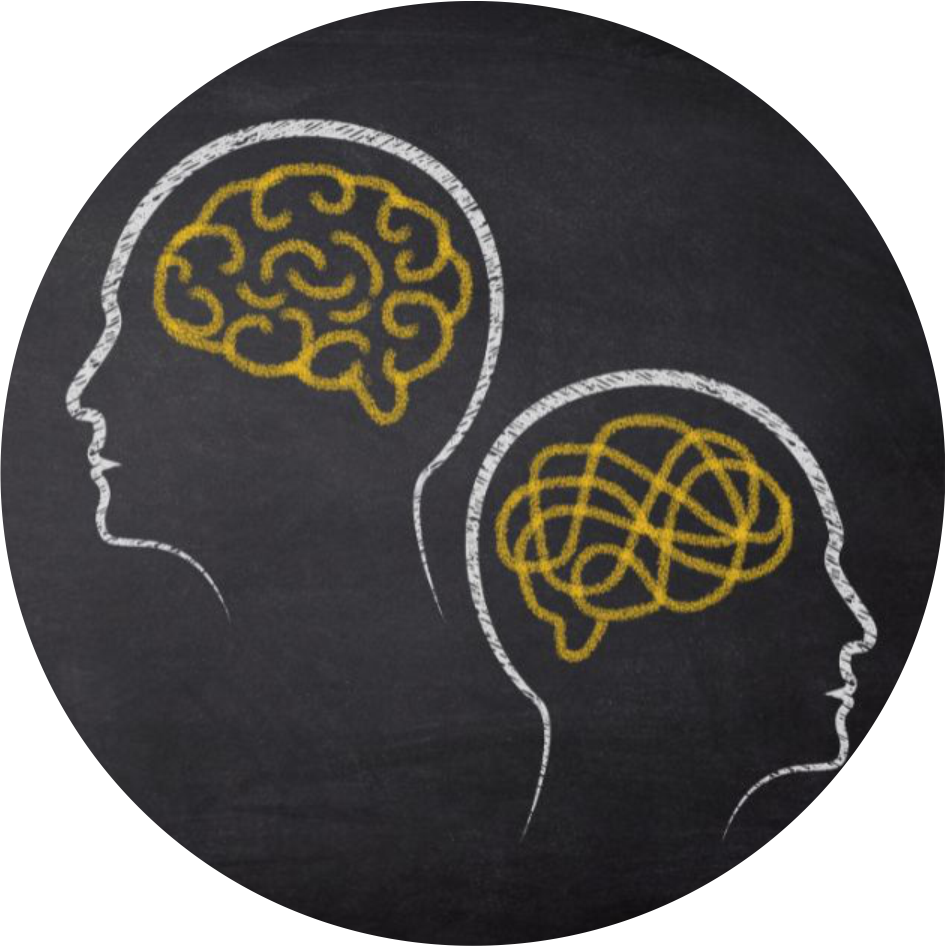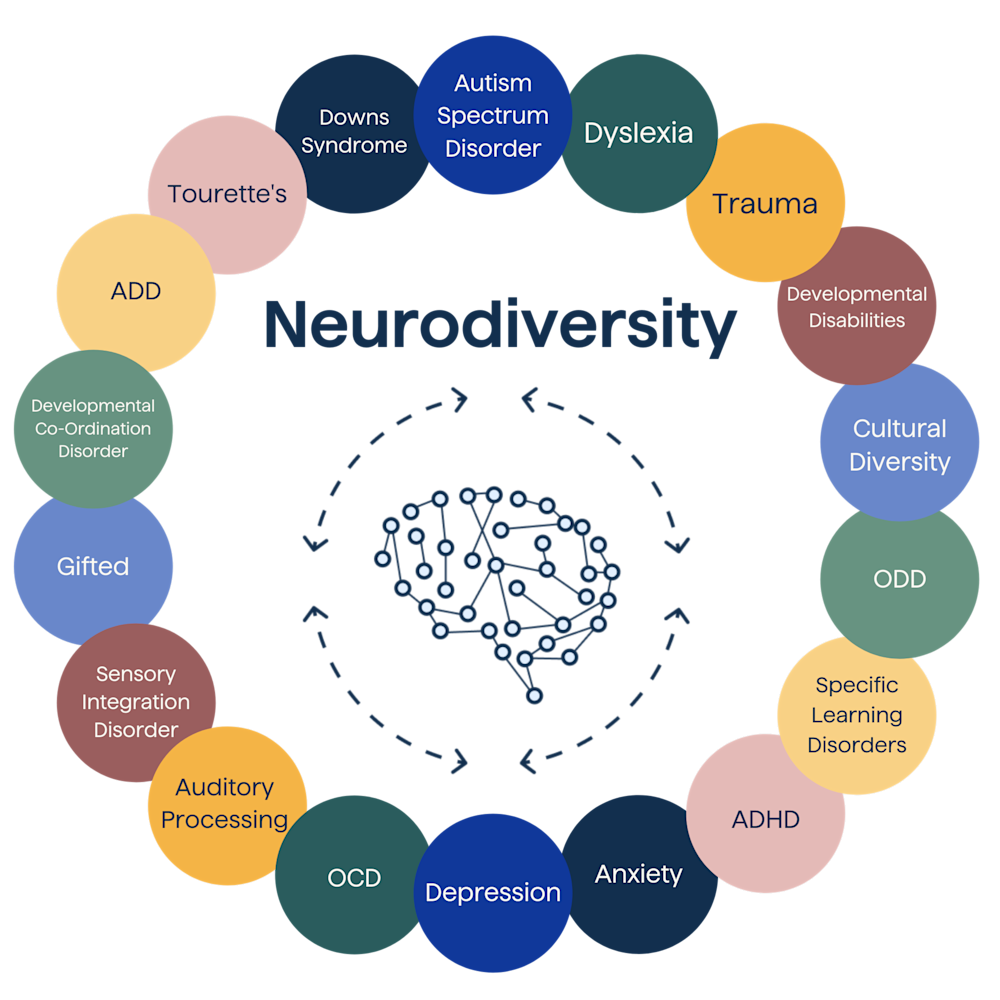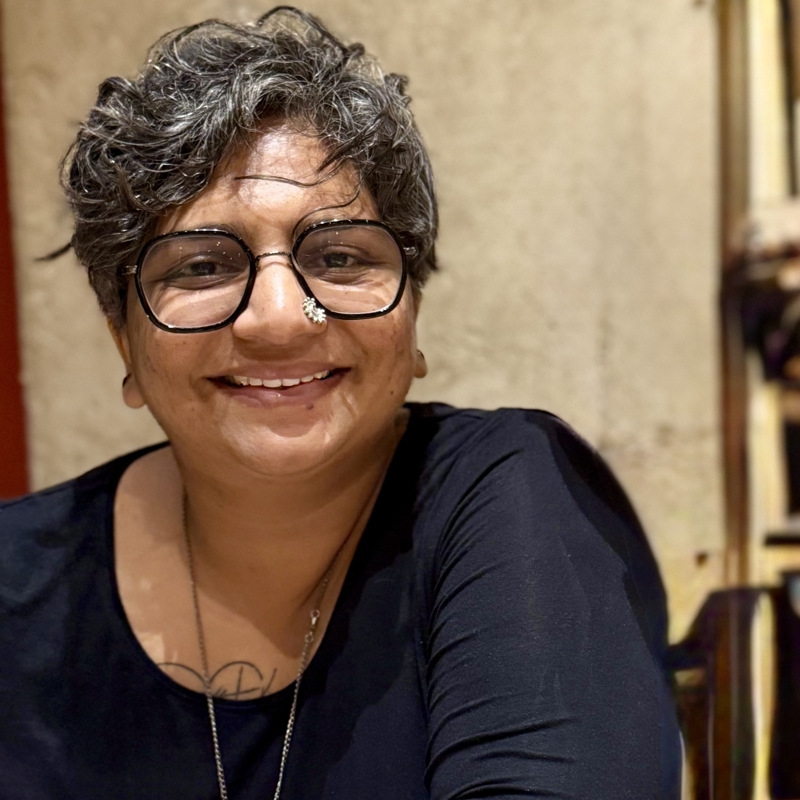Neurodiversity & Mad Studies
Subversive understandings of mental health
sept – Nov
Pay now
online training hours
Sessions

Neurodiversity & Mad Studies – Subversive Understandings of Mental Health
Overview
Neurodiversity and Mad Studies – Subversive Understandings of Mental Health is a 25-hour, disability-justice–centered training delivered over ten 2.5-hour sessions. Through a blend of political framing, historical inquiry, DSM/ICD deconstruction, ethics, and creative, lived-experience–centered explorations, this course reframes mental health from a justice lens.
Neurodiversity and Mad Studies explore the intersections of neurological differences and mental health experiences, recognising that these are not always mutually exclusive. Mad studies, a field of scholarship, examines the lived experiences of those who identify as “mad,” including individuals who are also neurodivergent, and considers the societal and political forces that shape mental health experiences.
Mad studies and the neurodiversity movement both offer critical perspectives on mental health and disability. They advocate for a shift away from biomedical models and toward a more inclusive, social justice-oriented approach. While distinct in their origins and foci, they share common ground in challenging the pathologisation of lived experiences and promoting self-advocacy and community-based support.
Eligibility
- Mental-health practitioners, counselors, and therapists
- Educators, social workers, and community organizers
- Advocates, peer‐support facilitators, and disability-justice allies
- Anyone curious about integrating neurodiversity and mad-studies principles into their professional or personal practice
Benefits
- Critical Frameworks: Ground your work in disability-justice and mad-studies/psychosocial disability scholarship
- Diagnostic Literacy: Gain hands-on experience deconstructing DSM/ICD categories (e.g., autism, schizophrenia, mood and personality “disorders”)
- Ethical Practice: Deepen your capacity to meet people where they are, honouring choice, agency, and lived expertise
- Creative & Embodied Inquiry: Learn art-based and narrative methods for holding space that center neuro-affirmative and embodied stories
- Community & Reflection: Build a supportive cohort, engage in personal and collective reflection, and co-create resources for ongoing practice
- Note: We will focus on working and holding space for adults.
Syllabus
01.
The political landscape of mental health
Exploring intention, personal reflection and collective movement towards disability justice centered understandings of mental health
02.
Historical exploration
ND and Mad Studies
03.
Deconstructing the DSM/ICD
Explore experiences such as Autism, ADHD, LD, Epilepsy
04.
Deconstructing the DSM/ICD
Exploring experiences such as Schizophrenia, Bipolar, Depression, Anxiety, OCD, “Personality disorders”
05.
Ethics
Of meeting people where they are
06.
Picture books, integrating art based inquiry with social justice stance
Explorations in what neuroaffirmative and lived experience centered hold spaces are
07.
Body and the narrative
Explorations in what neuroaffirmative and lived experience centered hold spaces are
08.
Story explorations
witnessing lived experiences in form of stories and exploring what holding space can look like. Individual therapy
09.
Story explorations
Group setting
10.
Wrap up
Consolidation and closing of concepts and experiences
*.
Please note
The session intentions will be flexibly explored centering the needs of the class. Transparency with respect to the same will be communicate at the beginning and end of each class.

Program begins September 2025
Structure & Format
Interactive Sessions
A mix of short lectures, small‐group reflections, role-plays, art-making, and fishbowl demos.
Flexible, Needs-Centered Learning
Session topics will pivot to the group’s interests and questions—transparency at the start and close of each class.
Accessible & Trauma-Sensitive Design
Materials shared in advance, multiple modalities for participation, regular sensory breaks.
Concrete Takeaways
Each session concludes with clear objectives, reflective prompts, and resource lists to integrate insights into your work immediately.
Final Synthesis
In Session 10, co-produce a “Mad & Neuro-Affirmative Practice Guide” and commit to one actionable change for your next client, classroom, or community session.
Certificate
You will receive a certificate of participation if you have attended at least 8 out of 10 sessions. On successful completion of the course requirements, participants can get up to 30 credits when applying for the Expressive Body program
Attendance
Participants committing to attend will need to ensure time is exclusively given for this course. Details regarding online presence will be shared during registration.
Fee
Wednesdays (excluding public holidays)
3, 10, 17, 24 Sept | 8, 15, 29 Oct | 5, 19, 26 Nov 2025
5 pm – 8 pm IST
10 sessions x 3 hrs = 30 hrs
virtual training
INR 27000 + 18% GST

Faculty
Aarathi Selvan (they/them) MA.,EdM., MPhil, PhD(scholar) is a licensed clinical psychologist and educator based in Hyderabad, India. They have nearly 20 years of experience in the field of psychology. As Founder and Lead Clinician of Pause for Perspective, Aarathi has, since 2016, developed and taught an integrative, anti-oppressive mindfulness training adopted by dozens of mental-health practitioners across India. They also design and supervise India’s longest-running 18-month fellowship in embodied social justice, guest-lecture at St. Francis Degree College, and mentor emerging therapists in queer-affirmative, neurodiversity-informed, and disability-justice frameworks. In this 25-hour course, Aarathi brings over a decade of clinical experience, lived experience and grassroots advocacy to guide you through Subversive Understandings of Mental Health—blending critical theory, diagnostic deconstruction, creative inquiry, and trauma-sensitive practice to foster truly neuro-affirmative and mad-studies–centered care.

